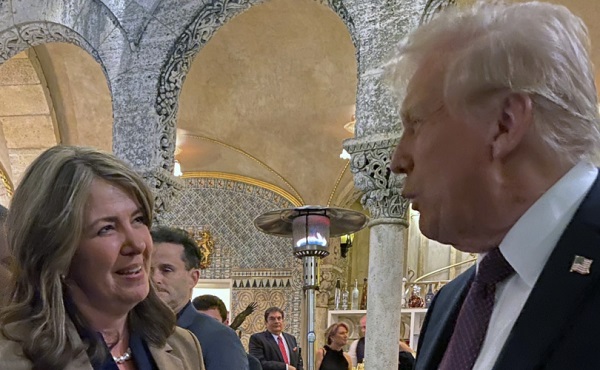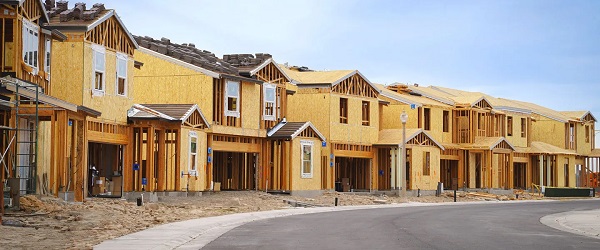Alberta
Alberta Bill of Rights Amendment, Bill 24 – Stronger protections for personal rights

From Premier Danielle Smith
Our government has introduced Bill 24, the Alberta Bill of Rights Amendment Act, 2024, because we believe that individual freedom is the cornerstone of a strong Alberta. Over the past few years, we’ve seen what can happen when government actions go too far, especially during the COVID-19 pandemic. It became clear that we need stronger protections for your personal rights, and that’s exactly what we’re working to deliver.
Stronger property rights
Your property is yours, and we want to make sure that remains clear in Alberta law. With this amendment, you’ll be protected from having your property taken without lawful process and fair compensation. This is about putting Albertans first, ensuring you can enjoy what you’ve worked hard for.
We’re committed to standing up for lawful firearms owners in Alberta. Ottawa’s restrictive measures target law-abiding citizens, not criminals. Bill 24 reinforces your right to acquire, keep, and use firearms legally, and we’ll continue to push back against federal overreach on this front.
Protecting all forms of expression
Lastly, we’re expanding protections for your right to express yourself, not just in words but in all lawful forms. This amendment reflects our commitment to ensuring that all Albertans can freely share their beliefs without fear of government interference.
We introduced Bill 24 because Alberta should be the freest place in Canada, and we’re committed to making that a reality.
We want to do a quick check to see where you stand. Please take our one-click survey:

Alberta
Nuclear in the mix for Alberta’s energy future

Alberta’s government is inviting Albertans, Indigenous communities and industry to join the conversation on nuclear energy in the province.
Alberta is launching a public engagement to explore nuclear energy’s potential to meet the future needs of families, businesses and communities. As part of the first phase, Alberta’s government is appointing an expert panel to engage with people across the province, as well as launching a public survey to help inform a nuclear energy roadmap for Alberta.
With increasing demand for electricity, fuelled by population growth, many jurisdictions in Canada and around the world are advancing nuclear energy development. As a source of safe, reliable, emissions-free energy, nuclear power has emerged as a viable option for growing energy needs while supporting responsible decarbonization goals. It also has the potential to enhance grid reliability and affordability, create jobs and help power new, energy-intensive industries and technologies.
“Alberta is at the centre of Canada’s growth, and with that growth comes the responsibility to secure the next generation of energy. Nuclear power has the potential to expand our grid, support new industries and keep pace with rising demand. This engagement gives Albertans a real voice in shaping our future, while positioning our province to lead the way in innovative, responsible energy development.”
Danielle Smith, Premier
“As demand for electricity grows, affordability and reliability must remain at the heart of our system. Exploring nuclear energy is about ensuring Albertans have access to dependable, emissions-free power that can support families, businesses and communities for generations.”
Nathan Neudorf, Minister of Affordability and Utilities
The Nuclear Energy Engagement and Advisory Panel will lead a range of engagement activities, gather input and deliver a report with recommendations on how Alberta could enable a nuclear energy industry. The panel will be chaired by Affordability and Utilities Parliamentary Secretary Chantelle de Jonge and includes five additional members with diverse experience and leadership in industry, academia and Indigenous government:
Deron Bilous, senior vice-president of Western Canada, Counsel Public Affairs
Tim Boston, principal, Boston Edge Strategies Inc.
Stephen Buffalo, president and CEO, Indian Resource Council of Canada
Rudiger Tscherning, fellow on Nuclear Law and Policy, University of Calgary
Harrie Vredenburg, professor of Strategy and Global Management, University of Calgary
“Nuclear power has the potential to play an important part in meeting Alberta’s future energy needs. I’m proud to lead a panel that will provide people in Alberta with the opportunity to have their say and shape the future of energy in our province.”
Chantelle de Jonge, parliamentary secretary, Affordability and Utilities
The Nuclear Energy Development survey is available online and will be open until Sept. 25. Feedback will inform future engagement activities. Alberta’s government has also proactively reached out to Indigenous communities across the province to help determine the best approach for meaningful engagement and to foster early relationship building. Industry, municipalities, Indigenous communities and others are also invited to share their input through an online request for information which will be open until Oct. 25.
“Nuclear energy is ready to meet Alberta’s growing needs. We applaud the province’s forward-thinking leadership in exploring nuclear’s ability to provide a secure and prosperous energy future.”
George Christidis, president and CEO, Canadian Nuclear Association
The next phase of engagement will feature in-person meetings and engagement sessions with Indigenous communities, municipalities and industry and begin later this year. Engagement activities will continue into 2026.
Alberta
New Calgary plant to produce luxury vinyl flooring with Alberta oil and gas

Carlos Soares, president of Divine Flooring, inside the company’s 100,000-square-foot warehouse just outside Calgary. Photo for the Canadian Energy Centre
From the Canadian Energy Centre
By Will Gibson
Heartland Polymers to supply recyclable, low emissions polypropylene plastic
Carlos Soares has sold enough flooring to furnish all the residences, businesses and public facilities in a medium-sized city since starting Divine Flooring in 1999.
But now the Calgary entrepreneur will expand into manufacturing luxury flooring using a key Alberta hydrocarbon that will create a more sustainable product and reduce reliance on imports.
“People walk on luxury vinyl floors every day in their homes, malls, stores, hotels— it is the fastest growing category in our industry over the past decade,” says Soares, whose business employs 165 people and 250 contractors in Calgary, Edmonton, Vancouver and Chicago.
“Billions of square feet of new floor coverings are manufactured and installed every year around the world.”
While luxury vinyl products mimic the look of natural woods, they generally contain polyvinyl chlorides or PVCs, a synthetic plastic polymer used to create flexibility and durability.
PVCs are difficult to recycle and take a lot of energy to produce. Most PVC production is in Asia, with roughly half of the world’s capacity in China.
Soares has discovered a more environmentally friendly alternative to PVCs produced at the Heartland Polymers plant near Edmonton.
 The Heartland Polymers project in Fort Saskatchewan, Alta. Photo courtesy Inter Pipeline Ltd.
The Heartland Polymers project in Fort Saskatchewan, Alta. Photo courtesy Inter Pipeline Ltd.
Opened by Inter Pipeline Ltd. in July 2022, the facility produces polypropylene plastic pellets directly from locally sourced propane, a first of its kind in North America. Polypropylene is one of the world’s most widely used recyclable plastics.
By converting about 22,000 barrels per day of propane into polypropylene instead of using it as fuel, Heartland says it cuts up to one million tonnes of greenhouse gas emissions annually — the equivalent of about 217,000 cars.
“Polypropylene is our secret sauce. It can do all the things PVCs do,” says Soares.
“But it is made in Alberta and it is a low-emission product free of chemicals that make it tough to recycle.”
Soares and his partners in a venture called PolyCo have started construction on a $45 million facility in Balzac, about 25 kilometres north of downtown Calgary, to manufacture luxury vinyl flooring using Heartland polypropylene.
A second-generation Canadian and entrepreneur, he wants to give back to the place where he grew up in a meaningful way.
“My grandparents moved to Canada from Portugal in 1967 and this country has given our family so much. My father started his own welding shop in 1974 and ran it for years with old-school values. He always taught me to do the right thing and don’t compromise on quality,” he says.
“That’s what we want to do with this proposal. We are putting more Canadians to work to make a more sustainable product and strengthen our local economy.”
Production at the plant is scheduled to start in the third quarter of 2027. It will employ 100 people when it reaches full capacity, initially producing 28 million square feet of flooring every year. A second phase will eventually bring the plant’s total capacity to 50 million square feet annually.
The plant will be a “zero waste” facility, where all the dust and trimmings from the process will be swept up and put back into future production.
In July, Emissions Reduction Alberta awarded the project $5 million through its Advanced Materials Challenge, a competition funding innovative low-emission products in the province.
The funding is part of $49 million in ERA grants to 18 projects, determined after independent review by a team of experts in science, engineering, business development, commercialization, financing and greenhouse gas quantification.
Together, the projects have a total estimated value of $198 million.
ERA’s goal is to accelerate projects that can improve the economy and the environment, says Justin Riemer, the agency’s CEO.

“In the case of the PolyCo project, it highlights how to better utilize the supply chain we have here in Alberta. Everything this plant will need to source is literally within a three-hour drive,” he says.
ERA has provided more than $1 billion in grants to more than 300 projects valued at $7 billion in 16 years across the province.
“Of all the completed projects who’ve received funding, 50 per cent have been commercialized, which is a much better success rate than venture capital gets,” says Riemer, who has led ERA for three years.
“It’s important to have this funding available because a lot of financial infrastructure in this country is risk-adverse to trialing and commercializing innovation technology.”
The agency’s grants are financed through Alberta’s Technology Innovation and Emissions Reduction (TIER) fund, which collects contributions from the oil and gas sector under the province’s carbon pricing and trading system.
“ERA receives about 10 per cent of the TIER contributions,” Riemer says.
“Through these competitions, we have managed to see successful commercialization of technologies across a broad array of sectors beyond oil and gas including forestry, agriculture, power generation, critical minerals and even nuclear.”
For Soares, the vote of confidence given by the agency in the proposal was crucial.
“This ERA grant is huge for this project to go ahead but so was the decision. It gives us the confidence the government is behind the project and wants to see it materialize,” he says.
“They are serious about real ideas that can produce sustainable and affordable products right here.”
Soares is unapologetic in having his project funded by carbon levies collected from oil and gas.
“We produce oil and gas more responsibly than anywhere in the world in Alberta and I’m proud of that even though I don’t work directly in the industry,” he says.
“The fact that oil and gas contribute to grants that help create more sustainable products and technologies demonstrates the province’s commitment to doing things better.”
-

 Addictions1 day ago
Addictions1 day agoWhy North America’s Drug Decriminalization Experiments Failed
-

 Business1 day ago
Business1 day agoDisney scrambles as young men reject DEI-filled franchises
-

 Alberta1 day ago
Alberta1 day agoGood Sense Beats Team Canada’s Hysteria
-

 Alberta23 hours ago
Alberta23 hours agoNew Calgary plant to produce luxury vinyl flooring with Alberta oil and gas
-

 Health1 day ago
Health1 day agoThe Hidden Risk of an Abortion
-

 Business3 hours ago
Business3 hours agoInvestors Fleeing Green Energy Scene After Death Of Biden’s Freebies
-

 Business1 day ago
Business1 day agoCarney’s housing plan will likely spend a lot for very little
-

 Energy5 hours ago
Energy5 hours agoGeothermal Energy in Canada: Overview, Developments, Exploration Areas, and Leading Companies





